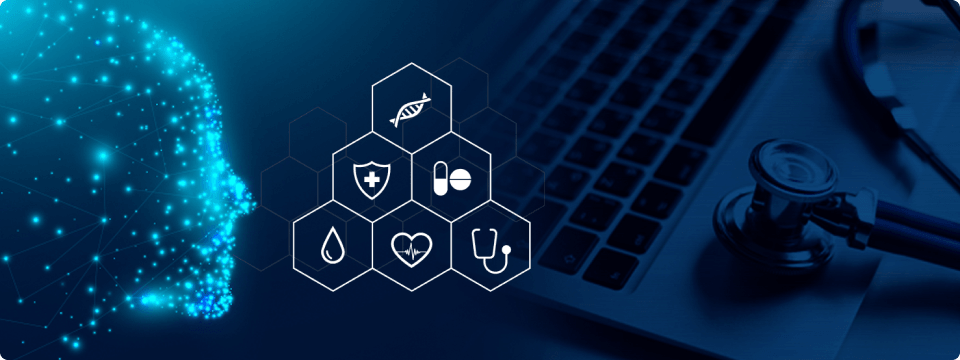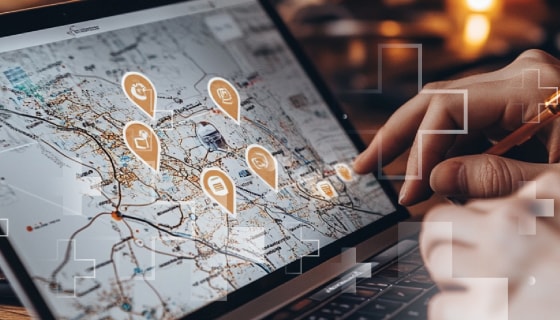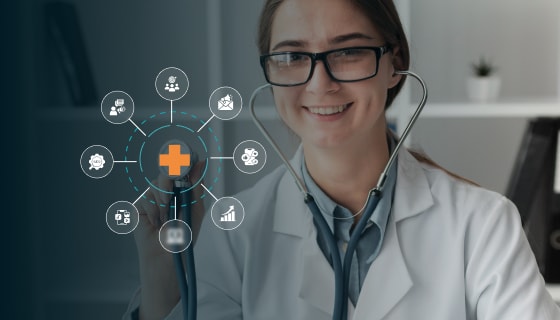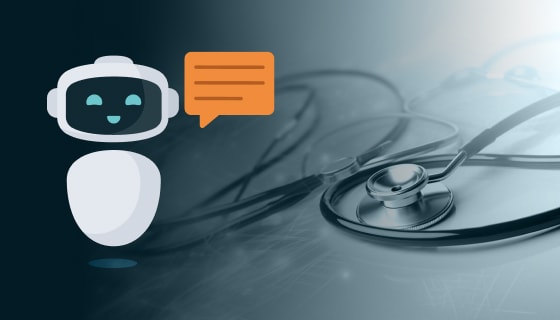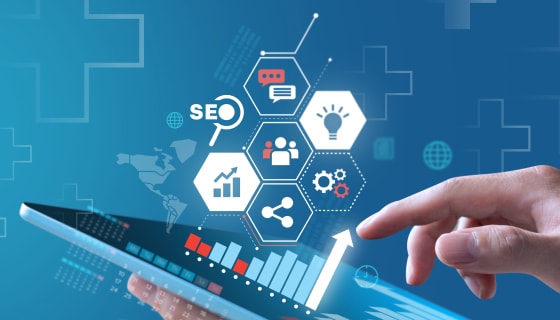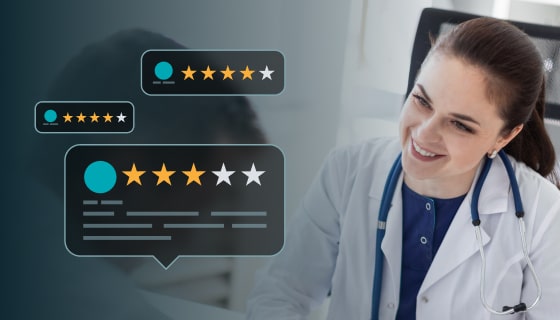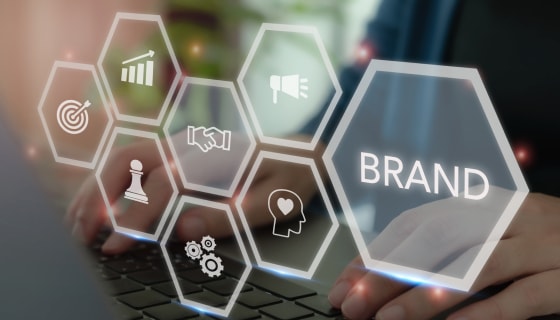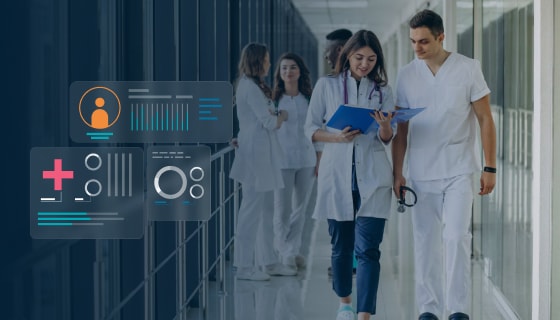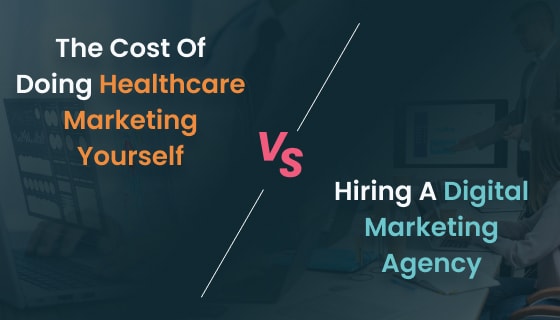Introduction
Artificial Intelligence is like the rockstar of the tech world right now, shaking things up in all sorts of fields. AI uses in Healthcare are making waves, too. It’s not just a fancy addition; it’s actually changing the game. Compared to the old-school healthcare methods, AI is like a superhero with all these cool upgrades. It’s helping doctors and clinicians with better treatment options and giving them a hand when they need it. The possibilities with AI seem to have no limits, and it’s turning into a must-have tool that’s revolutionising healthcare in ways we couldn’t have dreamed of.
The Growing Demand Of Artificial Intelligence
From the hum of self-driving cars to the whisper of intelligent assistants, AI is no longer the stuff of science fiction. It’s a force reshaping our world, quietly weaving itself into the fabric of our lives, and the demand for its power is thundering. This isn’t a slow burn; it’s an explosion driven by an insatiable hunger for efficiency, innovation, and solutions previously unimaginable.
Industries are clamoring to harness AI’s potential, from healthcare’s quest for personalized medicine to finance’s hunt for market predictions. Yet, the story of AI’s demand is more than just numbers and applications. It’s a narrative of human ambition, a race to unlock the potential of the machines we created.
The demand for machine learning in healthcare isn’t just growing; it’s hurtling us towards a future brimming with possibilities and challenges, where understanding this demand is no longer a choice but a necessity.
The Fact Stats
- The global AI market is expected to reach a staggering $594 billion by 2032, growing at a CAGR of 19.1%. This indicates a massive upsurge in adoption and investment.
- AI in medical imaging diagnostics market to reach $6.7 billion by 2027.
- 38% of healthcare providers use AI for clinical decision support.
- 80% of banks are investing in AI $28.6 billion market size for AI in BFSI by 2025.
Industries like healthcare, finance, manufacturing, and retail are leading the charge, using AI for tasks like:
- Automating processes to increase efficiency and reduce costs.
- Personalizing experiences for customers and users.
- Making data-driven decisions for better insights and outcomes.
- Developing innovative products and services that cater to evolving needs.
Factors Driving The Rise Of AI-Driven Digital Marketing Services In Healthcare
The healthcare industry is witnessing a significant surge in adopting AI-powered digital marketing services. This isn’t just a passing trend; it’s a fundamental shift driven by several key factors:
Evolving Patient Expectations
Today’s patients are digitally savvy and expect a seamless online experience when interacting with healthcare providers. AI-powered services like chatbots and personalized content recommendations cater to this preference, fostering patient engagement and satisfaction.
Demand For Personalized Care
Patients increasingly seek healthcare tailored to their individual needs and preferences. AI allows for hyper-personalization of marketing messages, content, and outreach, building stronger patient relationships and trust.

Growing Competition And Need For Differentiation
Saturation in the market: The healthcare landscape is becoming increasingly competitive, making it crucial for providers to stand out. AI-powered marketing tools enable targeted advertising, data-driven insights, customized digital marketing strategy, and optimized campaigns, giving healthcare businesses a competitive edge.
Need For Efficiency And Cost Optimization
Rising healthcare costs necessitate efficient operations. AI automates repetitive tasks, frees up staff time for patient care, and optimizes resource allocation, leading to cost savings and improved efficiency. The cost of AI implementation is decreasing, making it feasible for healthcare providers of various sizes to leverage its benefits.
Continuous AI Development
Rapid advancements in AI capabilities, like natural language processing and deep learning, make AI-powered tools more sophisticated and accessible for the healthcare industry.
Shifting Regulations
Regulatory bodies are increasingly recognizing the potential of AI in healthcare while emphasizing responsible data governance and patient privacy. This encourages the development of secure and ethical AI solutions for healthcare marketing.
Focus On Data Privacy
AI-powered marketing services must adhere to strict data privacy regulations like HIPAA. This fosters trust and transparency, reassuring patients about their data security.
The convergence of these factors drives the rapid adoption of AI-driven digital marketing services in healthcare. By harnessing the power of AI, healthcare providers can deliver exceptional patient experiences, achieve operational efficiency, and gain a competitive edge in the evolving healthcare landscape.
How AI-Powered Digital Marketing Services Are Reshaping Healthcare Industry
Healthcare providers face a unique challenge: connecting with patients meaningfully while navigating a complex and ever-evolving industry. That’s where AI-powered digital marketing services come in, offering a powerful toolkit to revolutionize your healthcare experience and unlock new levels of patient engagement, growth, and success.
Here’s how AI is transforming healthcare marketing and how it can benefit your business:
Personalized Patient Engagement
Imagine a 24/7 virtual assistant answering patient questions, scheduling appointments, and offering basic health information. Platforms like Babylon Health use AI-powered chatbots to deliver personalized care and improve patient satisfaction.
Content Recommendations
AI can analyze patient data to recommend relevant health articles, healthcare guest posts, videos, and resources, fostering deeper engagement and promoting preventive care. Cleveland Clinic leverages AI to personalize its website content, leading to a 30% increase in user engagement.
Targeted Ad Campaigns
Reach the right audience with the right message at the right time. Human uses AI to target specific patient demographics with relevant health insurance options, leading to a 20% increase in conversion rates.
Predictive Modeling
Identify patients at risk for certain conditions and proactively reach out with educational materials and preventative measures. Mount Sinai Health System uses AI to predict hospital readmissions and intervene early, reducing readmission rates by 15%.
Streamlined Operations And Improved Efficiency
AI can handle repetitive tasks like appointment reminders and claims processing, freeing up staff time for patient care. Northwell Health uses AI to automate administrative tasks, saving nurses an average of 4 hours per week.
Data-Driven Insights
Gain valuable insights from patient data to optimize marketing campaigns, improve resource allocation, and make data-driven decisions. Kaiser Permanente uses AI to analyze patient data and identify areas for cost reduction, saving millions of dollars annually.
Enhanced Brand Reputation And Trust
AI can personalize outreach based on patient preferences, fostering trust and building stronger relationships. Mayo Clinic uses AI to personalize patient communication, leading to a 25% increase in patient satisfaction scores.
Real-Time Feedback Analysis
Monitor and respond to patient feedback in real-time, addressing concerns and demonstrating responsiveness. Centene Corporation uses AI to analyze patient feedback and identify areas for improvement, leading to a 10% increase in patient loyalty.
By partnering with a digital marketing agency specializing in varied online marketing solutions, you can unlock these transformative benefits, additionally:
- Reach a wider audience with targeted campaigns and personalized content.
- Deliver relevant and timely health information, promoting patient engagement and preventive care.
- Foster positive patient experiences and build lasting relationships.
- Make data-driven decisions and maximize the impact of your marketing efforts.
How AI-Driven Digital Marketing Services Benefits Healthcare
AI-powered digital marketing services can be a game-changer for healthcare businesses. Imagine chatbots providing 24/7 support, personalized health content based on patient data, and targeted ad campaigns reaching the right audience at the right time.

This translates to increased patient engagement, improved brand awareness, and a thriving healthcare business. By leveraging AI’s data analysis and personalization capabilities, you can attract new patients, educate existing ones, and build trust while optimizing your marketing efforts for maximum impact. Don’t wait to embrace the future – consider partnering with a digital marketing agency specializing in AI solutions to unlock the full potential of your healthcare business.
Conclusion
Integrating artificial intelligence (AI) in healthcare digital marketing has proven to be a transformative force, enhancing patient outcomes and optimizing overall healthcare strategies. ZealousWeb emerges as a beacon in this dynamic landscape, showcasing a profound understanding of the intersection between AI and healthcare marketing.
By harnessing AI algorithms for personalized content delivery, predictive analytics for targeted outreach, and data-driven insights for informed decision-making, ZealousWeb stands out as a strategic partner capable of navigating the complexities of healthcare marketing. The potential for improved patient engagement, streamlined operations, and enhanced brand visibility becomes evident through their tailored approach.
By choosing ZealousWeb, healthcare organizations can embark on a journey towards a digitally empowered and patient-focused future, where AI seamlessly integrates with marketing strategies to drive tangible, positive results.


